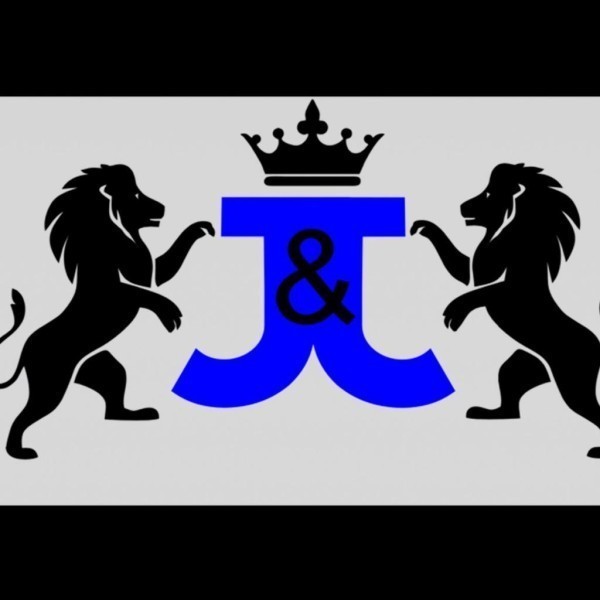Boiler/Heating Engineers in Falkland
First Response Heating LTD: Your Trusted Tradespeople in Bowhill, Fife
Welcome to First Response Heating LTD, yo... read more »
James Edwards Plumbing and Heating is a premier choice for plumbing and heating services in Port Brae a... read more »
Welcome to S. T Gas Services Ltd, your trusted partner for all your boiler and heating needs in Glenrothes and throughout Fife. With over... read more »
Welcome to JJ Plumbing And Heating Ltd, your go-to experts for all plumbing and heating needs in Windygates and across Fife. Wi... read more »
Welcome to TPP Gas, your trusted partner for all your... read more »
Welcome to Alistair Thorpe Plumbers & Heating Enginee... read more »
Welcome to Ignite Plumbing and Heating, your premier... read more »
Welcome to Home Heating Services Scotland, your premi... read more »
Welcome to Instaheat Plumbing and Heating Repairs, yo... read more »
Welcome to President Boilers Ltd, your go-to experts... read more »
Welcome to JWG Plumbing And Heating, your trusted par... read more »
M.Foster Plumbing And Heating is you... read more »
Perfect Service Group: Your Trusted Plumbers... read more »
Welcome to Dcc Gas Services, your trusted Boiler and... read more »
Welcome to Eccles Heating Services, your go-to expert... read more »
Ivoms Gas: Premier Boiler and Bathroom Specia... read more »
Welcome to Scot Heat Gas Services, your go-to experts... read more »
Welcome to BC Heating Services, your go-to experts fo... read more »
Search Boiler/Heating Engineers in places nearby
- Boiler/Heating Engineers in Anstruther Easter
- Boiler/Heating Engineers in Anstruther Wester
- Boiler/Heating Engineers in Auchmuirbridge
- Boiler/Heating Engineers in Auchtermuchty
- Boiler/Heating Engineers in Buckhaven
- Boiler/Heating Engineers in Burntisland
- Boiler/Heating Engineers in Cowdenbeath
- Boiler/Heating Engineers in Crail
Understanding the Role of Boiler/Heating Engineers in Falkland
Boiler and heating engineers play a crucial role in ensuring the comfort and safety of homes and businesses in Falkland. These skilled professionals are responsible for installing, maintaining, and repairing heating systems, which are essential for providing warmth and hot water. In this article, we'll explore the various aspects of their work, the skills required, and the importance of their services in the Falkland community.
The Importance of Heating Systems in Falkland
Falkland, known for its picturesque landscapes and historical significance, experiences a range of weather conditions throughout the year. With chilly winters, having a reliable heating system is not just a luxury but a necessity. Heating engineers ensure that these systems function efficiently, providing warmth and comfort to residents and businesses alike.
Weather Conditions and Heating Needs
The climate in Falkland can be quite unpredictable, with cold spells that require efficient heating solutions. Boiler and heating engineers are tasked with ensuring that systems are prepared to handle these conditions, preventing breakdowns and ensuring consistent warmth.
Impact on Daily Life
A well-functioning heating system is integral to daily life in Falkland. From hot showers to warm living spaces, these systems contribute significantly to the quality of life. Boiler engineers ensure that these systems operate smoothly, minimizing disruptions and enhancing comfort.
Key Responsibilities of Boiler/Heating Engineers
Boiler and heating engineers in Falkland have a wide range of responsibilities, each critical to the effective functioning of heating systems. Their expertise ensures that systems are installed correctly, maintained regularly, and repaired promptly when issues arise.
Installation of Heating Systems
One of the primary tasks of heating engineers is the installation of new heating systems. This involves assessing the specific needs of a property, selecting appropriate equipment, and ensuring that the installation meets all safety and efficiency standards.
Regular Maintenance and Inspections
Regular maintenance is essential to keep heating systems running efficiently. Engineers conduct routine inspections, clean components, and make necessary adjustments to prevent potential issues. This proactive approach helps in extending the lifespan of the systems and reducing energy costs.
Repair and Troubleshooting
When heating systems malfunction, engineers are called upon to diagnose and repair the issues. Their expertise allows them to quickly identify problems, whether it's a faulty thermostat or a leaking boiler, and implement effective solutions to restore functionality.
Skills and Qualifications of Heating Engineers
Becoming a boiler/heating engineer requires a combination of technical skills, formal education, and hands-on experience. These professionals must be adept at problem-solving and possess a deep understanding of heating systems and their components.
Educational Background
Most heating engineers have completed relevant vocational training or apprenticeships, providing them with the foundational knowledge needed for the job. Many also pursue certifications that demonstrate their expertise and commitment to maintaining high industry standards.
Technical Skills
Heating engineers must possess strong technical skills, including the ability to read blueprints, understand complex systems, and use specialised tools. These skills are crucial for accurately diagnosing issues and performing precise installations and repairs.
Soft Skills
In addition to technical abilities, heating engineers must have excellent communication skills. They often interact with clients, explaining complex issues in simple terms and providing advice on system maintenance and energy efficiency.
The Process of Hiring a Boiler/Heating Engineer in Falkland
Hiring a qualified heating engineer in Falkland involves several steps to ensure that you choose the right professional for your needs. It's important to consider factors such as experience, reputation, and cost when making your decision.
Research and Recommendations
Start by researching local heating engineers and seeking recommendations from friends, family, or online reviews. This can provide valuable insights into the quality of service and reliability of different professionals in the area.
Checking Credentials
Ensure that the engineer you choose is properly certified and has the necessary qualifications to perform the work. This not only guarantees quality service but also ensures compliance with safety regulations.
Obtaining Quotes
Request quotes from multiple engineers to compare prices and services offered. This will help you find a professional who offers the best value for your budget while meeting your specific heating needs.
Common Heating System Issues and Solutions
Heating systems can encounter a variety of issues, from minor inconveniences to major malfunctions. Understanding these common problems and their solutions can help you address them promptly and effectively.
Thermostat Malfunctions
A faulty thermostat can lead to inconsistent temperatures or a complete lack of heat. Engineers can recalibrate or replace thermostats to ensure accurate temperature control and efficient system operation.
Boiler Leaks
Leaks in a boiler can cause significant damage and reduce system efficiency. Engineers can identify the source of the leak, repair or replace damaged components, and prevent further issues.
Radiator Issues
Radiators that fail to heat up properly may have trapped air or blockages. Engineers can bleed radiators or flush the system to restore proper heat distribution and improve overall efficiency.
Energy Efficiency and Environmental Considerations
With growing awareness of environmental issues, energy efficiency has become a key consideration for heating systems. Engineers play a vital role in helping clients reduce their carbon footprint and energy costs.
Upgrading to Energy-Efficient Systems
Heating engineers can recommend and install modern, energy-efficient systems that consume less energy and reduce emissions. These upgrades not only benefit the environment but also result in significant cost savings over time.
Regular Maintenance for Efficiency
Regular maintenance is crucial for maintaining energy efficiency. Engineers ensure that systems are clean and well-tuned, preventing energy waste and optimising performance.
Advising on Sustainable Practices
Engineers can provide valuable advice on sustainable heating practices, such as using programmable thermostats, insulating homes, and utilising renewable energy sources where possible.
Frequently Asked Questions
- What qualifications should a heating engineer have? Heating engineers should have relevant vocational training, certifications, and experience in the field.
- How often should heating systems be serviced? It's recommended to service heating systems annually to ensure optimal performance and safety.
- What are the signs of a failing boiler? Common signs include unusual noises, leaks, and inconsistent heating.
- Can heating engineers help with energy efficiency? Yes, they can recommend and install energy-efficient systems and provide advice on reducing energy consumption.
- How do I find a reliable heating engineer in Falkland? Seek recommendations, check credentials, and compare quotes from multiple professionals.
- What should I do if my heating system breaks down? Contact a qualified heating engineer to diagnose and repair the issue promptly.
In conclusion, boiler and heating engineers in Falkland are essential for maintaining the comfort and safety of homes and businesses. Their expertise ensures that heating systems operate efficiently, providing warmth and hot water when needed. By understanding their role and the services they offer, you can make informed decisions about your heating needs and enjoy a comfortable living environment year-round.
Send a message








